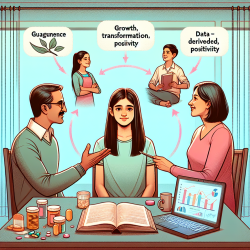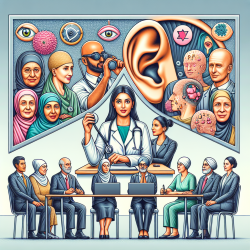The Power of Universal Health Coverage in Speech Language Pathology
As practitioners in the field of speech-language pathology, we are committed to enhancing the lives of children through effective communication therapies. However, to truly make a difference, we must look beyond our immediate practices and consider broader determinants of health. The research article, "The Legal Determinants of Health: How Can We Achieve Universal Health Coverage and What Does it Mean?" by Lawrence O. Gostin, provides valuable insights into achieving universal health coverage (UHC) and its implications for our field.
Understanding Universal Health Coverage
Universal Health Coverage (UHC) is not merely about access to healthcare; it encompasses a comprehensive approach to health that includes public health services and social determinants. For speech-language pathologists, this means advocating for policies that ensure all children have access to necessary healthcare services, including preventive and therapeutic interventions.
Implementing UHC in Speech Language Pathology
To improve our practice and outcomes for children, consider the following strategies based on the research findings:
- Advocate for Comprehensive Health Policies: Support policies that integrate speech-language services into broader health initiatives, ensuring that these services are accessible to all children, regardless of socio-economic status.
- Focus on Equity: Address disparities in access to speech-language pathology services by identifying and overcoming barriers faced by underserved populations. This could involve community outreach and partnerships with schools and local health organizations.
- Promote Public Health Interventions: Encourage initiatives that address environmental factors affecting communication, such as noise pollution and access to educational resources.
The Role of Data in Achieving UHC
Data-driven decision-making is crucial in advancing UHC. By collecting and analyzing data on service utilization and outcomes, speech-language pathologists can identify gaps in service delivery and advocate for necessary changes. This approach not only enhances individual practice but also contributes to the broader goal of achieving health equity.
Encouraging Further Research
The article highlights the importance of legal frameworks in achieving UHC. As practitioners, we should engage in further research to explore how these frameworks can be applied to speech-language pathology. Collaborating with legal experts and policymakers can lead to innovative solutions that enhance service delivery and access.
Conclusion
Universal Health Coverage offers a pathway to improve health outcomes for children by ensuring equitable access to necessary services. As speech-language pathologists, we have a role to play in advocating for and implementing these principles in our practice. By doing so, we contribute to a healthier, more equitable society.
To read the original research paper, please follow this link: The Legal Determinants of Health: How Can We Achieve Universal Health Coverage and What Does it Mean?










